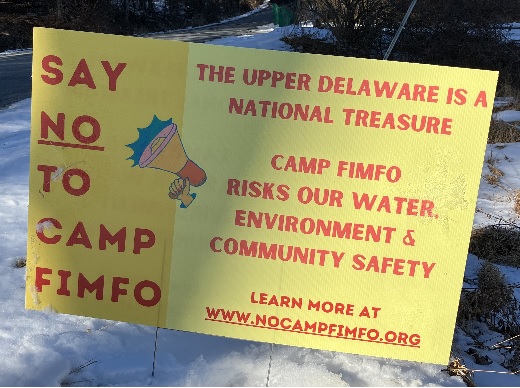NYS Department of Health Addresses Concerns on NYS DEC dSGEIS
July 21, 2009Water Problems From Drilling Are More Frequent Than PA Officials Said
August 2, 2009One of the issues that has surfaced frequently in our newspaper in recent weeks has been the question of the disparity between those who would profit from and those who would pay for natural gas drilling. The fact that there will be costs as well as profits is by now abundantly clear. The natural gas drilling companies will make money, as will the landowners who sign leases. But the costs will be largely borne by everybody else. It’s typical of a pattern that has become increasingly prevalent in our so-called capitalist economy, with the recent bank bailouts being a case in point: profits of any enterprise are reserved for a few private entities, while the losses are taken by the public at large.
One of the most blatant examples of this is the cost of damage to local roads. The Chenango Delaware Otsego Gas Group estimates that the number of trips by heavy water tankers per well per fracking ranges from 320 to 1,440. With up to 20 wells per pad and an assumed fracking frequency of once every five years, that could mean tens of thousands of water tanker trips over the life of a pad—not including other heavy equipment. That translates into an awful lot of required maintenance and repairs.
Fortunately, some, but not all, of our townships seem to be on top of this issue. Ben Johnson of Tusten, in particular, has been doing an admirable job of leading the initiative to see to it that our roads are bonded and agreements made to ensure that the gas drilling companies, not the taxpayers, pay for the damage. His efforts are already being joined in other local townships, and the county also is looking at gaining more control over its roads. But state laws on this matter are vague, and the success of these initiatives will be determined to some extent by legislators in Albany. We hope state lawmakers stop their bickering long enough to ensure that local townspeople don’t wind up footing the bill for drilling company road usage.
The issue of who will pay for any contamination of the water supply is even more crucial, however, and is very far from being adequately addressed. In order to make good claims against the drilling companies, homeowners who find that their drinking water has been polluted will have to prove that their water was not contaminated already before drilling started. That means paying for expensive tests that could cost hundreds of dollars—and that’s only if they know ahead of time what they’re supposed to be testing for.
There is a law in Pennsylvania, discussed in last week’s editorial, that purports to address this issue. It says that the drilling companies will be presumed to have caused contamination within 1,000 feet of a well unless they can positively prove that the water was polluted ahead of time, putting the onus on them to do any testing. Unfortunately, as discussed in the editorial, there is a huge exception written into that law that essentially makes it worthless. Unless that exception is stricken from the law, it is once again the many that will wind up paying for the profits of the few.
Another case of public loss, private profit is the impact of drilling on property values, as attested to by the mayor of DISH, TX, a town that welcomed natural gas drillers with open arms a few years ago and has lived to regret it. He reports that the total taxable value of the real estate in DISH has dropped sharply over the last few years because drilling activity has devastated the value of the surface land. He writes, “Unfortunately, most of the mineral owners in this area have kept the minerals [mineral rights] and moved on to someplace else. However, when they have tried to sell their property with wells and pipelines on them, it has not been successful.” In other words, the few who have profited have taken the money and run, leaving everybody else trapped in a town where the residential property is essentially worthless.
We have not even touched on the costs of impaired human and livestock health due to toxins in water supply and air, or the loss of dollars to industries like tourism that rely on our area remaining pristine and natural. All of these are borne by parties other than those who are profiting.
We don’t know what mechanisms are available, other than the road bonding process, to collect taxes and fees from the gas drilling companies and lessors to pay for the full costs of the procedure from which they are benefiting so richly. But in all fairness, some such mechanisms should be put in place so that those who will never see a penny from gas production do not see their own taxes, fees, medical bills and homeowner expenses skyrocket while the value of their property tumbles. These are all a cost of doing business, and it is those who are doing the business, not bystanders, who should pay.



